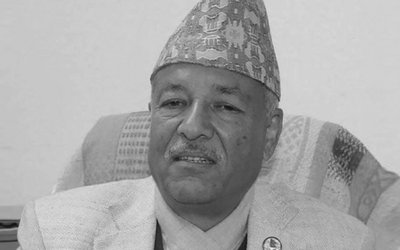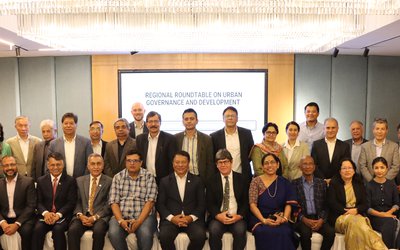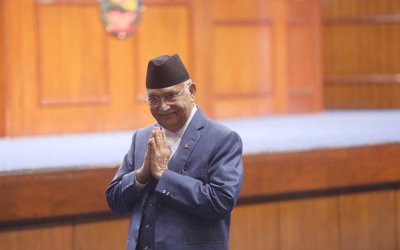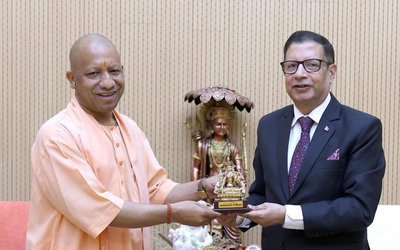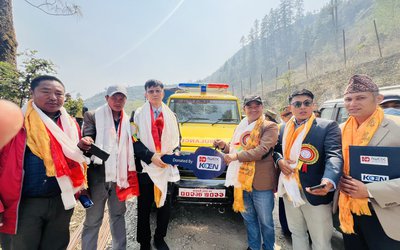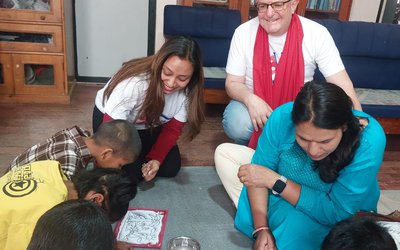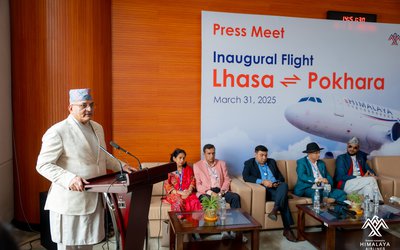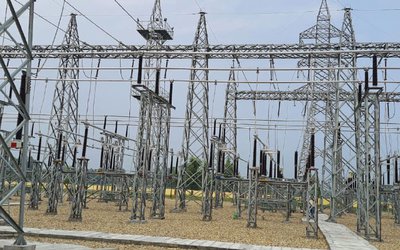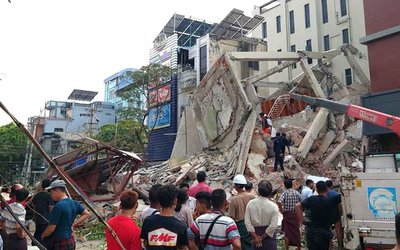
With the announcement of the street agitation by UCPN-Maoist alliance and threat by RPP-Nepal to boycott the CA, the relevance of Constituent Assembly II is under question.
Frustrated by the failure of political parties to deliver the day to day necessities, people are gradually taking a hostile attitude towards the existing political scenario and the main ideas for a politics as promoted by the country’s four major political parties.
Conducted by Interdisciplinary Analysts, a recent opinion poll has revealed that an overwhelming majority of Nepalese people are against the agenda carried out by Nepal’s four major political parties, mainly-Nepali Congress, CPN-UML, UCPN-Maoist and Madhesh based parties.
At a time when Nepali Congress and CPN-UML rejected to consider sending Federalism and Secularism for referendum, a majority of Nepalese rejected federalism and supported Nepal as a Hindu State.
Interestingly, 41 percent of people even said they have not heard about federalism. Among the institutions Nepalese had a high trust on: Radio received 65 percent followed by newspapers, television, Commission for Investigation of Abuse of Authority and Nepal Army. Thirty-two percent people still favor Nepali Congress (32) as the most popular party followed by CPN-UML 23 and ????? nine percent respectively. MJFN-(D) has support of 2 percent. Eighty-three percent of interview population said that they are not the member of any political party. Nepali Congress, CPN-UML and UCPN-Maoist have 7, 5 and 2 percent of members respectively.
In the interview, 70 percent of people said that they want to identify themselves as Nepali. People think the country is moving in the wrong direction. Poverty is the main anxiety of a majority of people. A majority considers poverty and unemployment are two major problems facing the country, followed by price hike, lack of development and infrastructure and corruption and new constitution not being formulated, said Nepal Contemporary Political Situation Opinion Survey Main Findings of NCPS XI & Trends.
Among the interviewers from different parts of Nepal, 71 percent want to see Nepal as a Hindu State and only 22 percent favor secularism. Among the political leaders, Indian prime minister Narendra Modi is popular, with 68 percent saying so, followed by president Dr. Baran Yadav, with 61 percent, Sushil Koirala 58 percent, and Gagan Thapa, 58 percent.
Prepared by Sudhindra Sharma & Team Members, Interdisciplinary Analysts, Opinion Survey Main Findings of NCPS XI & Trends is the first of its kind independent public opinion published after the CA II elections.
A closed ended questionnaire to 3,000 respondents, from 44 sample districts, representing 5 development regions and 3 ecological zones, 164 VDCs and 28 municipalities made this a broad opinion poll.
“The opinion poll looks at the overall direction, identification of Problems & Current Socio-economic Situation, Constituent Assembly and Constitutional Issues, Federalism, Trust towards Organizations and Institutions, Political Parties, Contentious Issues,” said Sharma, releasing the report.
A majority of population, or 38 percent, said Nepal is moving in the wrong direction as against 28 percent others. Those who believe the country is moving in the right direction hold the view that the country’s situation has stabilized, there is improvement in law and order and constitution writing process is in the right track.
Those who said the country is not moving in the right direction hold the view that political parties have failed to formulate a new constitution, there are no employment opportunities, development activities have come to a halt, there is price hike, there is lack of consensus among the main political parties and there is no improvement in law and order.
People hold the view that the unemployment, Poverty and Price hike are major problems faced by the country. They also believe that the lack of development and infrastructure, corruption and new constitution not being formulated are other problems. Communities and villages lack of roads, drinking water, electricity, employment, irrigation and income.
Thirty percent of interviewers say they don’t have much expectation from the Constituent Assembly. In substantive terms, thirty seven percent believe that it will bring development in the country and it will be able to formulate a new constitution and twenty one percent viewed that political parties will not formulate a new constitution again. Thirty one percent people expressed that they have no expectation from this government. Similarly, 22 percent had high and 25 percent had low expectations.
As Nepal’s politics is stagnant, in the wake of intensifying disputes among country’s major political parties, this is a warning call. Disenchantment of the people is likely to increase if the situation does not improve much.
- IME GROUP: Expands Into Paper Industry
- Mar 24, 2025
- CPN UML: Instigated By India
- Mar 23, 2025
- ADB’S CHIEF ECONOMIST: Nepal Reduces Poverty
- Mar 11, 2025
- FM DR. DEUBA: A Successful Visit
- Mar 11, 2025
- MD GHISING: Target Of Personal Grudge
- Mar 09, 2025
